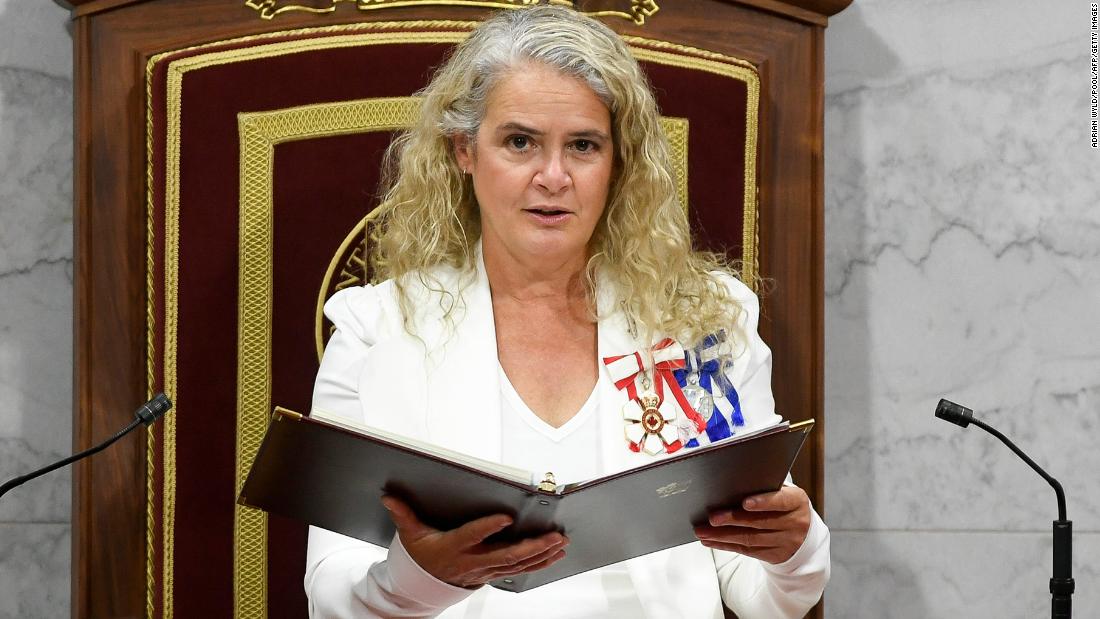In a detailed statement, Payette said she took the charges seriously – although she did not formally apologize or admit any misconduct in the workplace.
“Although no formal complaints or official complaints were made during my tenure, which would have immediately triggered a detailed investigation as prescribed by law and the collective bargaining agreements in force, I still take these allegations very seriously,” said Payette in the statement.
As the Canadian Broadcasting Corporation (CBC) first reported last year, current employees and former government officials accused Payette of creating a toxic workplace, harassing and intimidating employees and reducing some employees to tears.
In response, the Trudeau government hired an independent consulting firm to investigate the allegations. The report was completed and presented to the government earlier this week and this led to Payette’s resignation.
“I strongly believe in the principles of natural justice, due process and the rule of law, and that these principles apply to everyone equally,” wrote Payette. “Nevertheless, out of respect for the integrity of my vice-royal office and the good of our country and our democratic institutions, I have come to the conclusion that a new governor general must be appointed. Canadians deserve stability in these uncertain times.”
Canada’s Prime Minister issued his own statement on Thursday, saying he had received Payette’s resignation. Trudeau did not confirm any of the charges made to Payette. However, in the brief statement, he did not thank for his service.
“All government officials in Canada have the right to work in a safe and healthy environment and we will always take this very seriously,” said Trudeau in a statement. “Today’s announcement offers an opportunity for new leadership at Rideau Hall to address workplace concerns raised by employees during the review.”
Trudeau said the president of the Supreme Court of Canada will fulfill his duties as governor on a provisional basis until he makes a recommendation on the replacement of Queen Elizabeth.
If Payette had not agreed to resign in the light of the investigation in the workplace, dismissing her could have triggered a constitutional crisis in Canada and would have required a more formal involvement of the Queen.
Government officials told CNN that the report provided by independent investigators concluded that the allegations were consistent among employees and that the evidence for a toxic workplace was “robust”.
It is not clear whether the results of research at the workplace will be made public.
Payette said in her resignation statement that “everyone is entitled to a healthy and safe working environment at all times and in all circumstances. It seems that this was not always the case in the Office of the Secretary of the Governor-General. Tensions arose in Rideau Hall in the last few months and so I’m sorry. ”
However, later in the statement, she added: “We all experience things differently, but we must always strive to do better and be aware of each other’s perceptions.”
The Prime Minister of Canada is tasked with recommending a candidate for governor-general to be nominated by Queen Elizabeth. In 2017, when he recommended Payette, Trudeau said she was “unquestionably qualified for this high office”.
But Canadian opposition leader Erin O’Toole accused the prime minister’s office of not vetoing Payette thoroughly for the job. He said that all political parties should now have a say in who will replace Payette.
“The governor-general is the commander-in-chief of our Armed Forces and has an important constitutional role,” O’Toole said in a statement to CNN. “Considering the problems with his last appointment and the minority parliament, the prime minister must consult with opposition parties and reestablish the Vice Regal Nomination Committee.”
